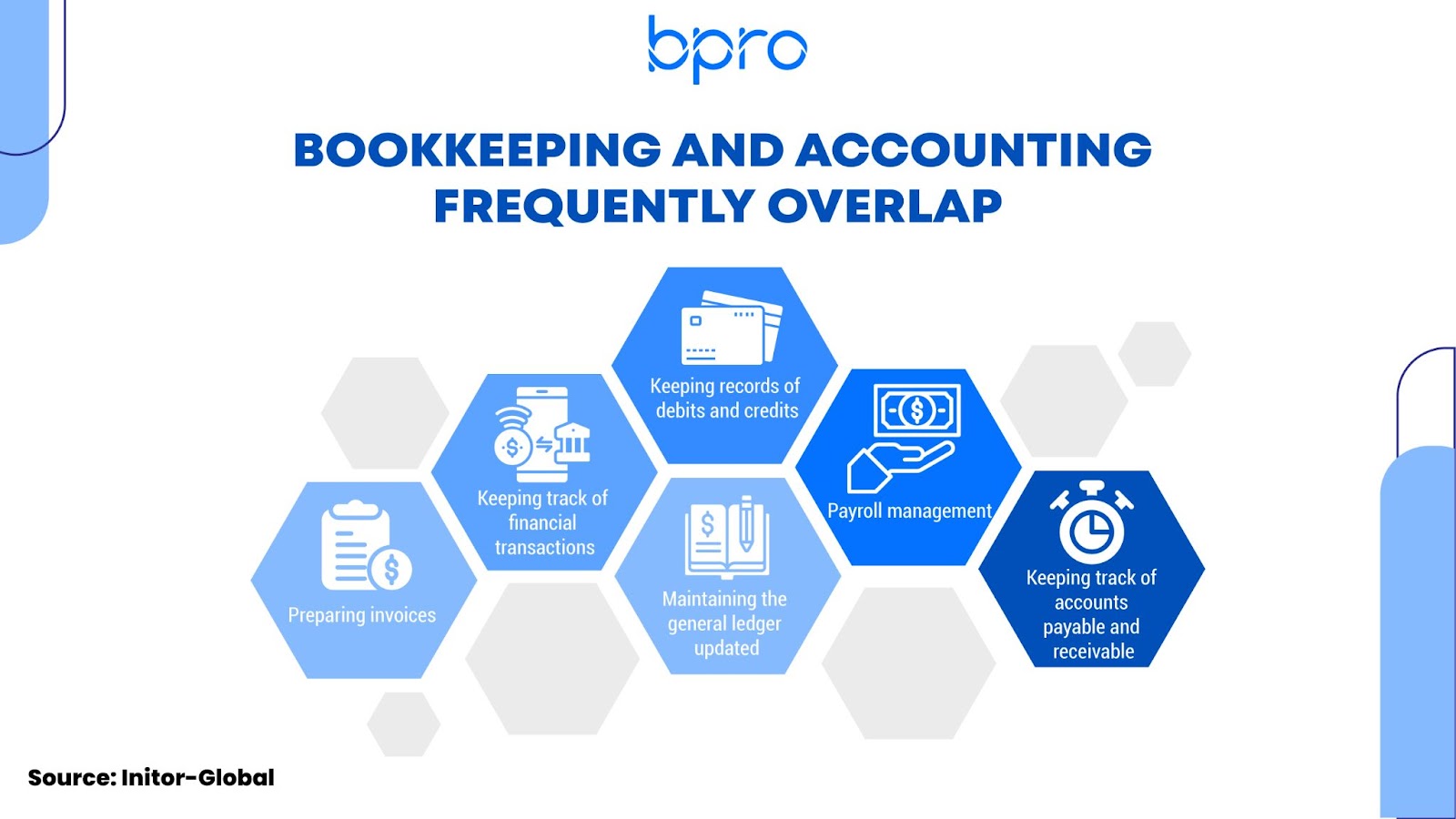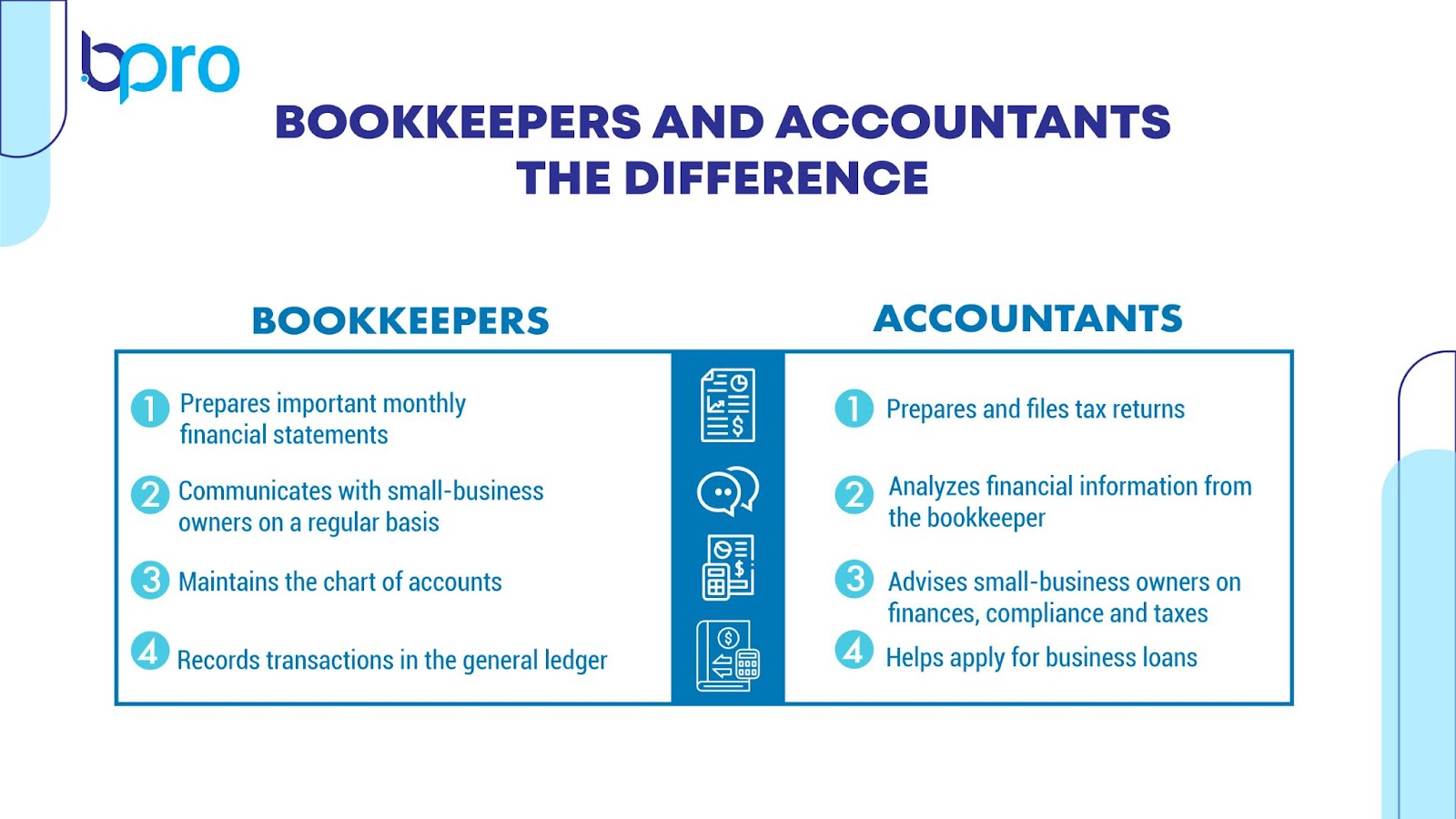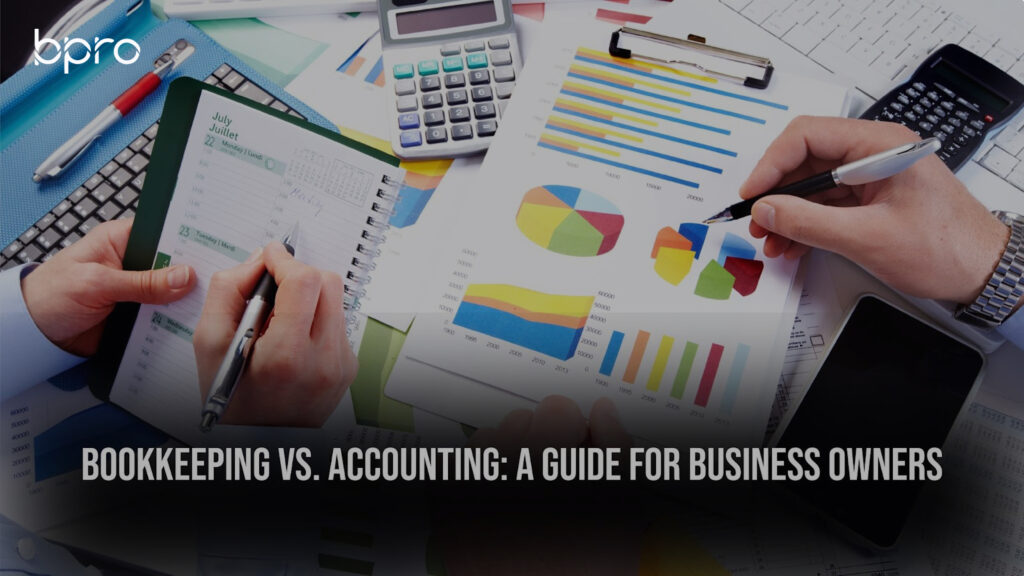Most people struggle to distinguish between bookkeeping and accounting when they try to define the differences between their two processes. Putting this in simpler words, bookkeeping is more administrative and majorly focuses on tracking and recording business finance. Whereas, accounting is considered irrational, as it uses the business books to determine the numbers to provide financial insights to company owners for accurate decision making.
Despite differences, both bookkeeping and accounting hold great significance for every startup, small business, and even enterprise. Bookkeeping helps in documenting financial transactions while, accounting assists to categorise, analysing and transforming financial data into numbers. For many business owners, both concepts may seem to be the same, this is because bookkeeping, as well as accounting, plays with financial data. However, both of these operations have their own benefits that are different from one another. To know more about these concepts, read this blog and invest accordingly, as business growth is dependent on bookkeeping and accounting.

Bookkeeping - A Short Overview
Bookkeeping is a process of handling, managing, maintaining and recording a business transaction that provides a snapshot of the current financial standing. This procedure may sound or look tedious or time-consuming at first if done manually, but today’s innovative applications and software are capable enough of making bookkeeping practices faster and easier. However, businesses that require loans, grants or assistance from federal programs like Paycheck Protection Program (PPP) need to have basic bookkeeping, this means, they must be able to handle business books. This also requires that the firm’s financial records are both updated and accurate. It also helps businesses to consistently record daily transactions, and it is a crucial step in obtaining the financial data required to manage a successful firm.
What goes into bookkeeping includes:
- Recording and handling business finance
- Managing cash flow
- Generating automated invoices in desired formats
- Developing business financial statements including budgets, balance sheets and much more
- Keeping an eye over on general ledgers and business accounts
- Creating accurate payrolls
Among heaps of bookkeeping services, developing and maintaining a business general ledger hold great significance. A bookkeeper enters the sums from sale and expense receipts in the general ledger, which is a fundamental document. The ledger is posted more frequently as more sales are completed. A computer spreadsheet, specialized software, or even just a piece of lined paper can be used to construct a ledger.
However, a bookkeeping system's complexity is frequently influenced by the size of the company and the volume of daily, weekly, and monthly transactions. As the company scales, it needs to record all sales and purchases in the ledger, and some transactions require accompanying documentation. Thus, bookkeeping services must be either outsourced or in-house, depending on the type and nature of the business.
Accounting - A Short Overview
Accounting is a high-level and more complex process that uses business financial statistics as well as data compiled by bookkeepers or automated systems to develop companies' finance models. However, the accounting operations are more subjective than the business bookkeeping practices, which are largely transactional. In addition to this, business accounting also analyses the financial reports to provide greater insight into business fiance to the owners in order to assist them in accurate and hassle-free decision-making. As a result, companies will have complete knowledge of their financial status, profitability and in/out cash flow. However, accounting procedures transform data from the business general ledgers into numbers that represent the overall standing and portray the picture of where the firm is headed. Other than this, the accountant teams also frequently assist the owners with detailed tax panning, financial forecasting, income tax returns calculations and much more.
Business accounting includes;
- Assessing and making adjustments in the entries. For example, the business has spent some und but that aren't recorded in the bookkeeping procedure
- Thoroughly reviewing the business financial records
- Analyzing operational cost
- Determining the income tax returns
- Providing detailed insights of finances to business owners.
Accounting and Bookkeeping - The Key Differences
Bookkeepers are required when businesses require a systematic mechanism to handle a firm's books. For instance, when startups begin to grow fast, it gets hard for in-house teams to handle bookkeeping on their own. If businesses have an extra budget, they might consider outsourcing bookkeeping services so the core team can pay more effort as well as time handling more critical operations.
Whereas, accountants are the resources that business requires when they need to make sense of a firm's financial information. To do so, businesses need a designated entity that can understand business goals and works efficiently to increase profitability, manage cash flows and provide insights for financial planning. Additionally, accountants also provide guidance and advice that can help companies to make savvy moves based on historical data or records.
However, bookkeeping and accounting differ, but they have some overlapping functions. Both of them play a critical role in making business successful while informing owners about their financial health along with providing future projections. In short, bookkeeping is the core of business finance while accounting handles the higher level of business financial matters.

Final Thoughts
Every business's long-term success is strongly influenced by the bookkeeper's organized financial records, correctly balanced accounts, astute financial planning, and accountant's accurate tax filing. Some business owners choose to employ a professional to handle their finances. While some others pay more attention to learning how to handle operations on their own in order to pay more attention to other business core operations. Whatever option businesses might select, investing in finances, whether time or money, can only help it expand.
